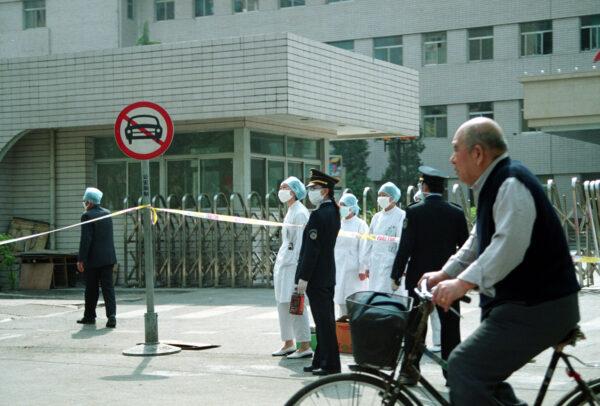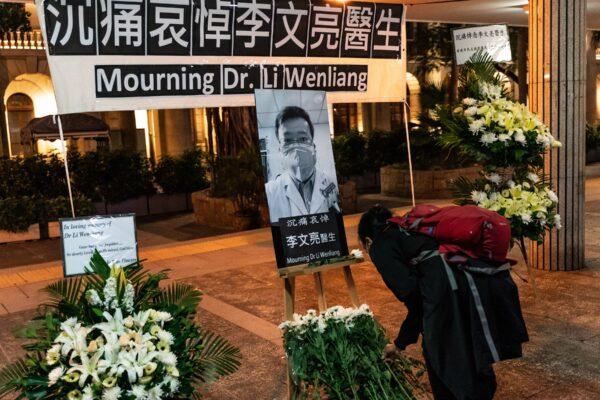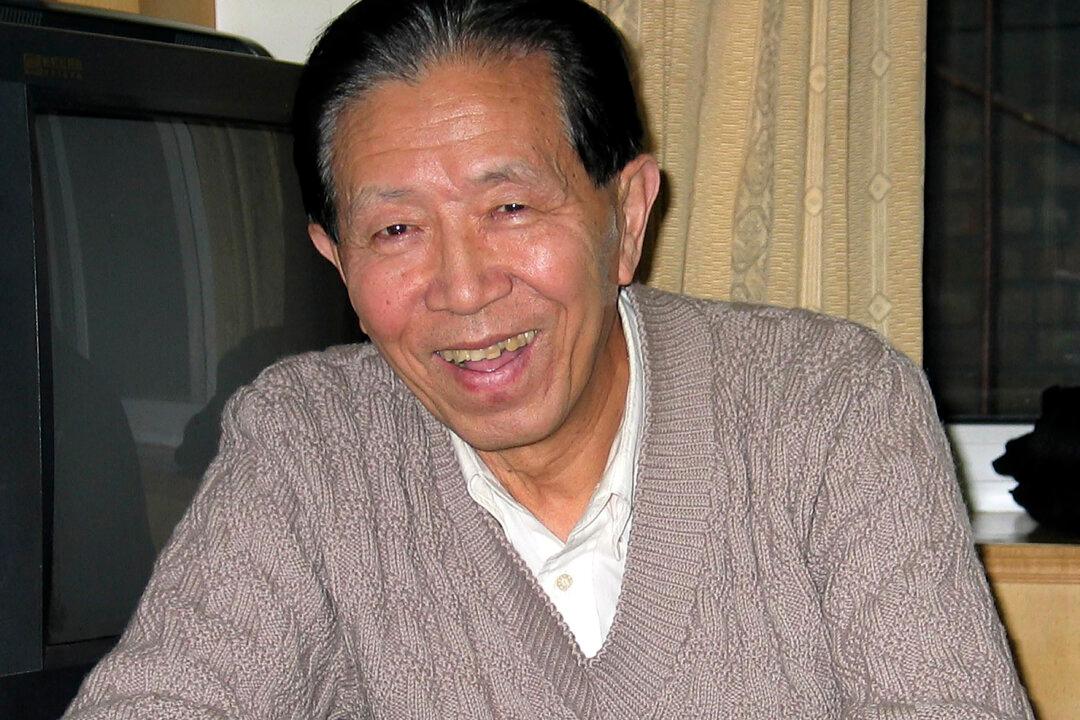Jiang Yanyong, a military surgeon who exposed the Chinese regime’s cover-up of the SARS outbreaks and who was later placed under house arrest for denouncing the 1989 Tiananmen massacre, has died. He was 91.
Jiang died of pneumonia on March 11 in Beijing, according to his longtime friend and Hong Kong media reports.
China’s state media remained silent about Jiang’s death, underscoring how he remained a politically sensitive figure even late in life.
‘Furious About the News’
In March 2003, Jiang had already retired as he learned Severe Acute Respiratory Syndrome (SARS) cases were surging in military hospitals in Beijing, including the one he had worked for.But the Chinese Communist Party (CCP) downplayed the SARS outbreak and suppressed information about the spread of the highly contagious virus at that time.
On April 3, 2003, then-health minister Zhang Wenkang told a press conference, by the end of March, there were only 12 infections and three deaths in Beijing. Zhang repeatedly assured the world that the outbreak in China was “under effective control.”
“I can tell you responsibly that it is safe to work, live, and even travel to China,” said Zhang. “It’s safe here whether you wear a mask or not.”
Jiang found it hard to believe when he watched the misleading comments from the high-ranking health official on television. On April. 4, he wrote a letter stating over 100 patients were treated for SARS in two Beijing hospitals alone.
“When I went to hospitals today, all the doctors were furious about the news,” Jiang said in the letter, urging the media to reveal the true scale of the outbreak for the sake of people’s lives and health.
Jiang’s letter put the regime under international scrutiny. At that time, investigators from the World Health Organisation (WHO) were in Guangdong Province, where the first SARS cases were reported. As a growing number of reports suggested the infections in Beijing were higher than the official accounts indicated, WHO called on the Chinese authorities to give them access to the capital city to investigate the outbreaks.
On April 20, China dismissed its health minister and the mayor of Beijing.

In 2004, Jiang was awarded the Ramon Magsaysay Award for Public Service from the Philippines, considered by some an Asian version of the Nobel Peace Prize. In the citation, he was praised for having broken “China’s habit of silence and forced the truth of SARS into the open.”
Tiananmen Square
From 2004, Jiang and his wife were periodically placed under house arrest for calling the CCP’s leaders to admit that the military attack on pro-democracy protesters in 1989 was wrong.The military doctor detailed what he witnessed at the emergency room on the night of June 3, 1989, after the regime ordered tanks to roll into Tiananmen square and deployed the troops to shoot unarmed demonstrators.
“I had been a surgeon for more than 30 years ... lying before me this time were our own people, killed by children of the Chinese people, with weapons given to them by the people,” he wrote.
Four months after drafting the letter, the doctor was arrested from his office and was detained for 294 days, Jiang said in a 2009 letter.
In 2007, Jiang won the Heinz R. Pagels Human Rights of Scientists Award given by the New York Academy of Sciences, but he was again blocked from traveling.
The pressure from the CCP didn’t stop Jiang from speaking up.
In recent years, Jiang faded from public view. But he was mentioned on China’s social media, especially during the COVID pandemic.

Mourning of Whistleblowers
Echoes of Jiang’s experience were heard in the CCP’s approach to the initial outbreak of COVID-19, first reported in the central Chinese city of Wuhan in late 2019. A Wuhan eye doctor, Li Wenliang, was reprimanded by police for allegedly spreading rumors on social media following an attempt to alert others about a “SARS-like” virus.As Li died on Feb. 7, 2020, China’s social media was overwhelmed with sympathy, frustration, and outrage, at both the doctor’s fate and the regime’s cover-up of the COVID-19 outbreak. Many users thanked Li for his courage in speaking up, as Jiang did 17 years ago.
Jiang was born in 1931 to a wealthy bank family in the coastal province of Zhejiang. He studied medicine at Yenching University after seeing his aunt die of tuberculosis. After graduation, Jiang joined the PLA in 1954 and was assigned to the No. 301 Hospital three years later.
In 1967, as the communist party’s cultural revolution started, Jiang was detained and later sent to the western Qinghai Province to work in military stables. In 1972, he returned to the No. 301 hospital.
As the news of Jiang’s death broke out earlier this week, some Chinese expressed their gratitude for the doctor’s bravery in the face of the pressure.
“Jiang Yanyong is a doctor with a conscience,” said a resident from a remote area of Guangxi Province.
But Jiang said what he did was “the most basic requirement for a doctor,” telling the truth.
“I’m not a hero,” Jiang was quoted as saying in a 2003 report on state media. “Just say Jiang Yanyong tells honest things.”




